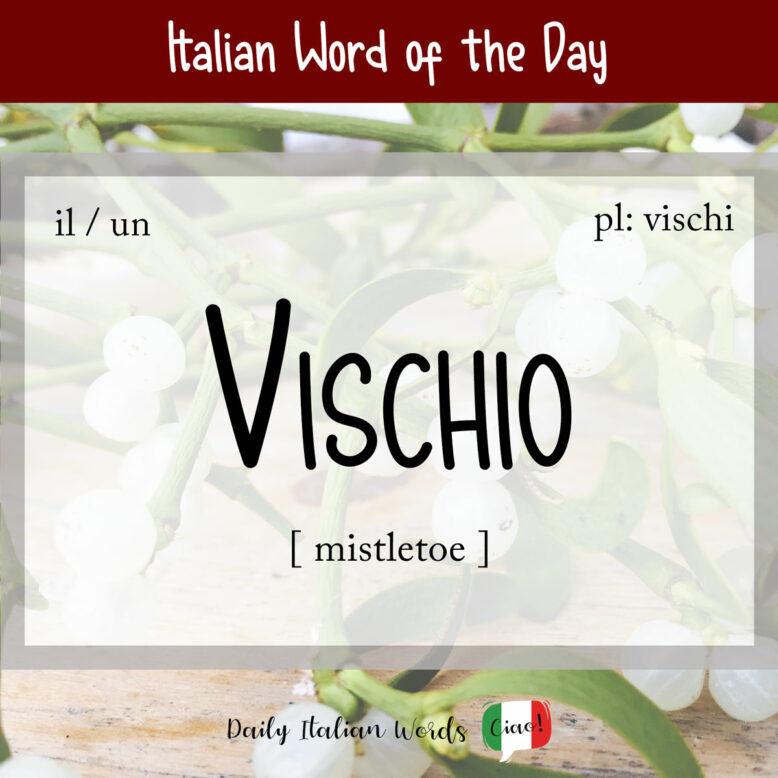What’s the plant that encourages people to share a kiss underneath it? Well, it’s mistletoe, of course, known as vischio in the Italian language!
vischio
mistletoe

Vischio is a masculine noun that takes the following definite and indefinite articles:
- il vischio = the mistletoe
- i vischi = the mistletoes
- un vischio = a mistletoe
- dei vischi = (some) mistletoes
Si sono baciati sotto al vischio.
They kissed underneath the mistletoe.
Rooted in Norse mythology, mistletoe gained significance through the tragic tale of Baldur, the god associated with this evergreen plant (pianta sempreverde). Frigg, Baldur’s mother, sought to protect him from harm by making all living and non-living elements swear an oath, except for mistletoe, inadvertently overlooked or disregarded. Seizing the opportunity, Loki, the god of deceit, fashioned lethal darts from mistletoe, leading to Baldur’s demise. Frigg’s tears transformed into mistletoe berries (bacche di vischio), symbolising love and respect, and today, mistletoe is hung on doors for good fortune.
Il vischio è una pianta parassita e velenosa.
Mistletoe is a parasitic and poisonous plant.
Mistletoe’s allure extends beyond mythology. In Victorian England, Charles Dickens popularised the tradition of kissing under the mistletoe (baciarsi sotto al vischio) during the Christmas season. The Celts, too, revered mistletoe for its auspicious symbolism of fertility. (Source: Focus)

Heather Broster is a graduate with honours in linguistics from the University of Western Ontario. She is an aspiring polyglot, proficient in English and Italian, as well as Japanese, Welsh, and French to varying degrees of fluency. Originally from Toronto, Heather has resided in various countries, notably Italy for a period of six years. Her primary focus lies in the fields of language acquisition, education, and bilingual instruction.


